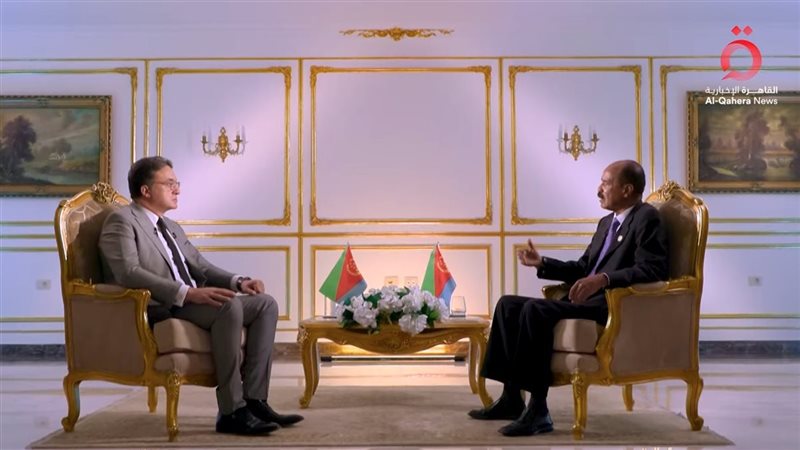Date: Tuesday, 04 November 2025
 Eritrean President
Eritrean PresidentEritrean President Isaias Afwerki asserted that the city of El Fasher in Sudan is not the core problem, indicating that the real crisis lies in the targeting of Sudan as a people and a state by regional and global powers seeking to complicate the strategic situation in the country.
During a special interview with journalist Tamer Hanafi on Cairo News Channel, Afwerki added that the current problems in Sudan represent an extension of these external ambitions, stressing that it is the duty of the countries of the region to support the Sudanese people to enable them to get rid of these interventions and begin rebuilding the state, explaining that local issues such as El Fasher and others are just details, while the fundamental problem lies in the external intervention that aims to create instability in Sudan and the region.
Afwerki stressed that the instability of Sudan directly affects the stability of the Red Sea and the Horn of Africa, noting that these external interventions are unacceptable, whether regional or global, and that their main objective is to impose influence in the region at the expense of the sovereignty of countries and the interests of their people.
In another context, Eritrean President Isaias Afwerki revealed that the Horn of Africa includes Somalia, Ethiopia, Sudan, South Sudan, Eritrea and Djibouti, stressing that the geopolitical importance of this region is historically well-known.
The Eritrean president added, during a special interview with journalist Tamer Hanafi on the Cairo News Channel, that Somalia has a 3,300-kilometer coastline in a strategic and vital location, but its instability makes it not only a local issue, but also a regional and international one.
Regarding Ethiopia, Afwerki pointed to ethnic divisions, explaining that local repercussions turn into regional and international problems as a result of these divisions and instability. As for South Sudan, he noted the continuation of civil wars and problems after its separation from Sudan, stressing that foreign interventions play a major role in complicating the situation.